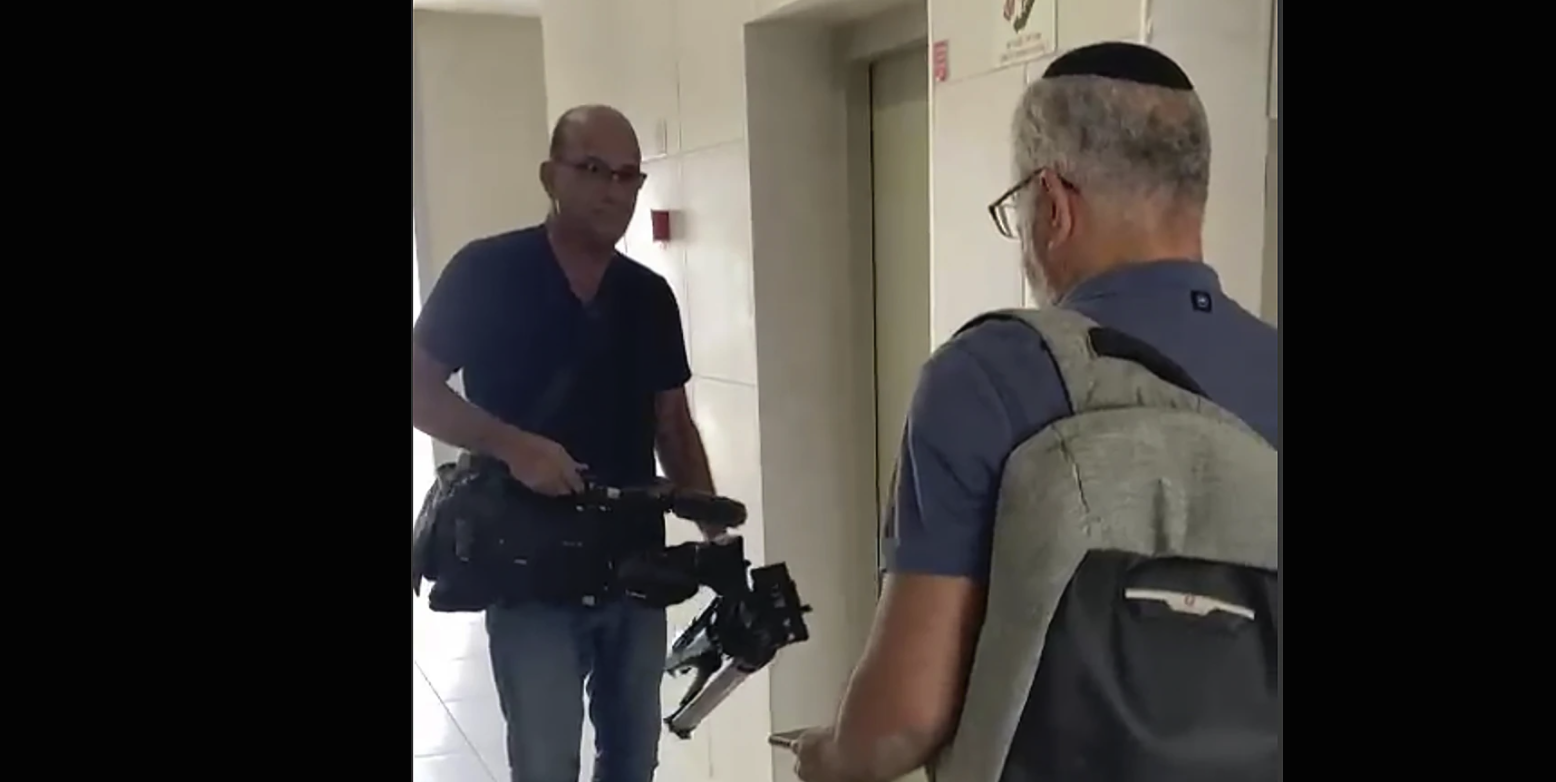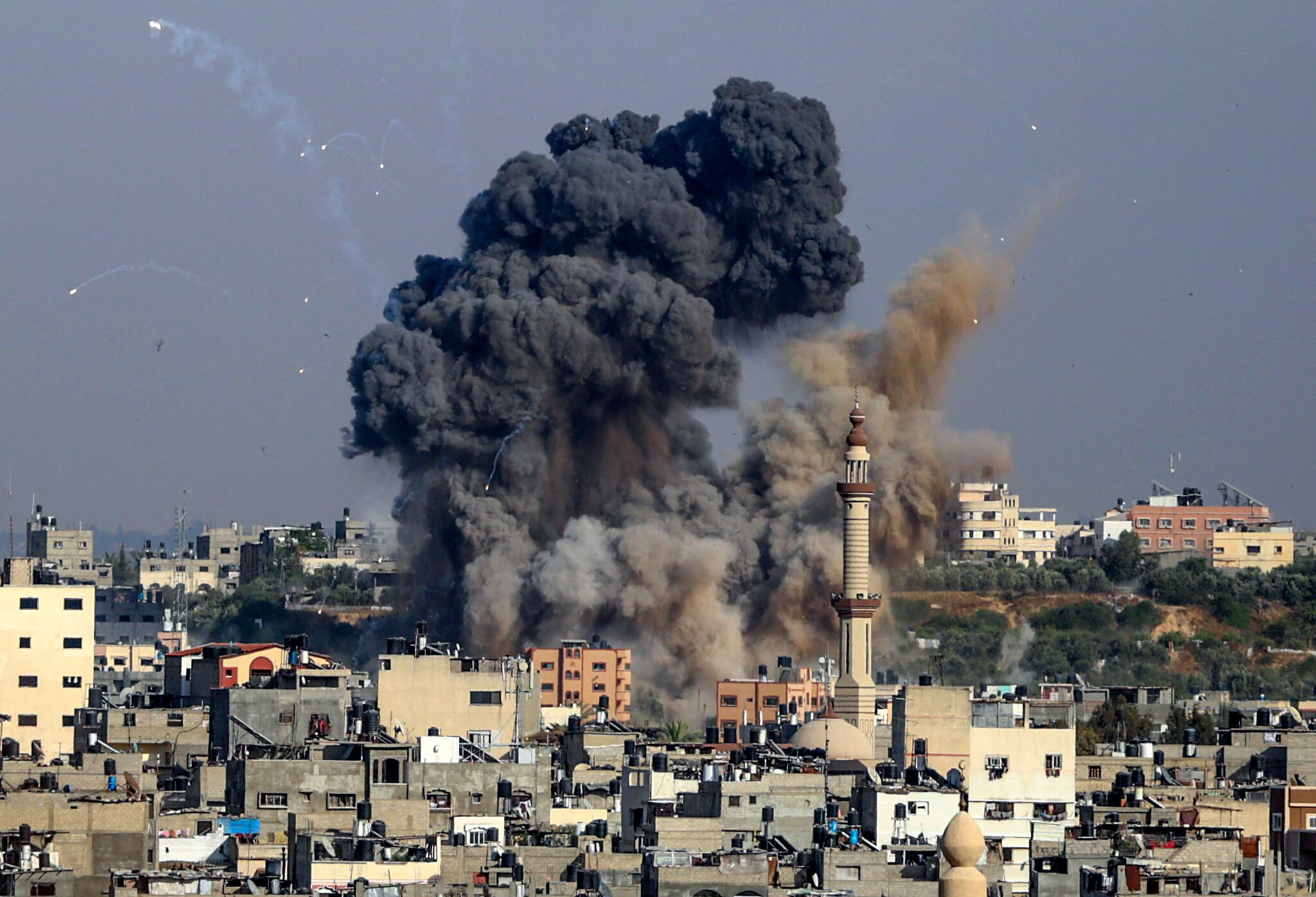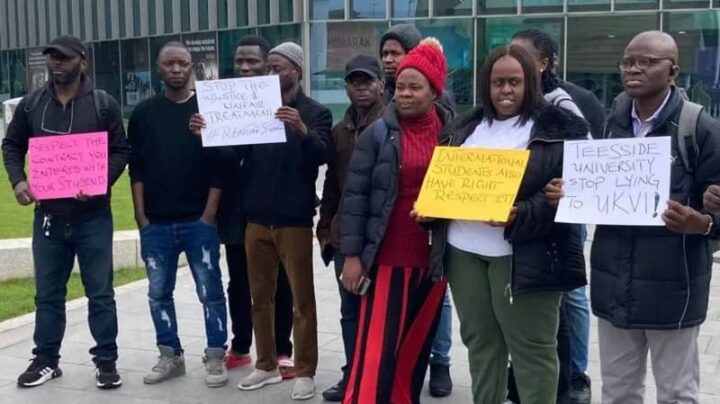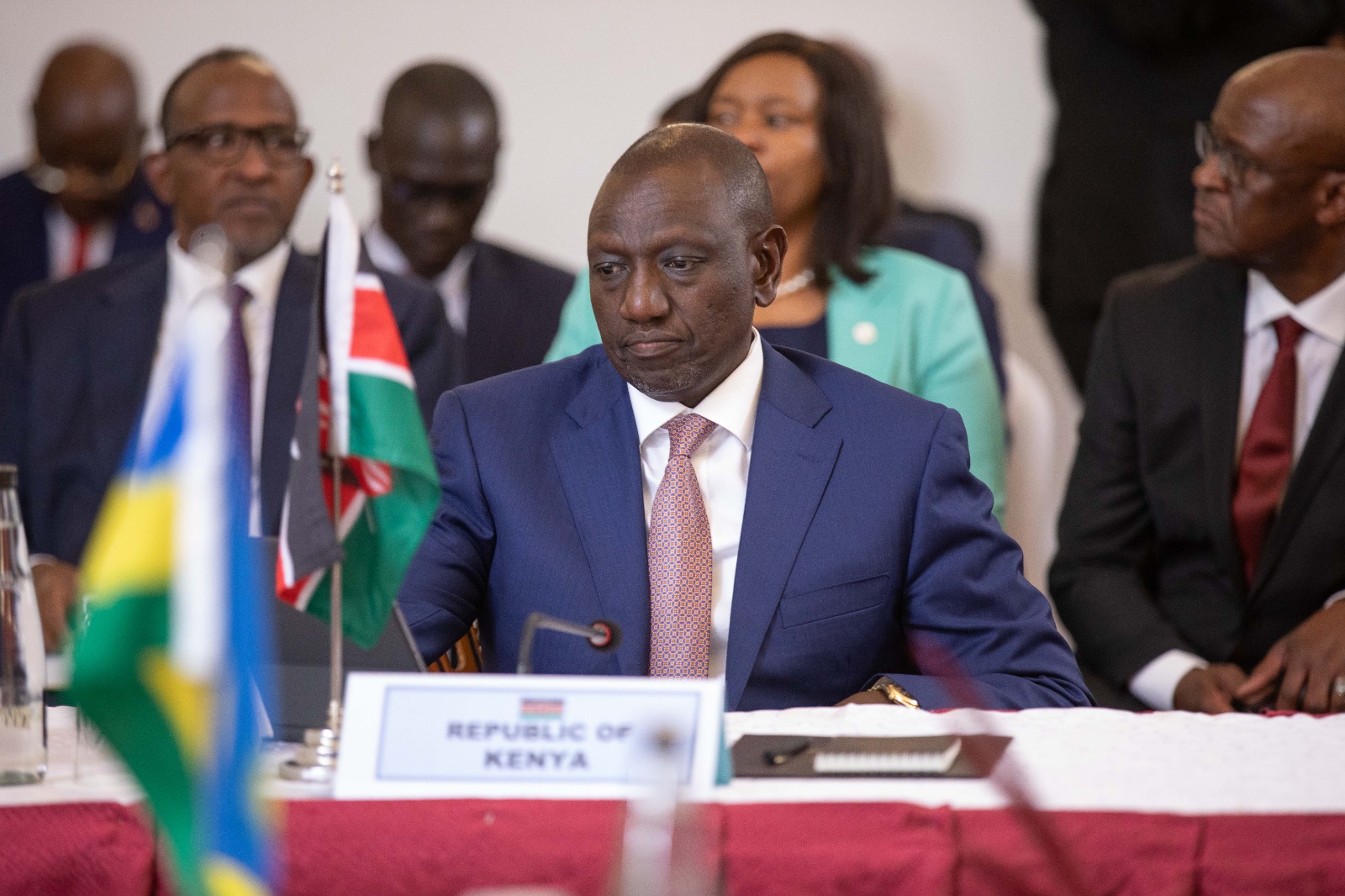In this image from video, Israeli officials seize AP video equipment from an apartment block in Sderot, Southern Israel, Tuesday, May 21, 2024. (AP Photo/Josphat Kasire)
Israeli authorities seized broadcasting equipment belonging to The Associated Press (AP) for “violating its new media law”.
The law, which was passed by the Knesset weeks ago, allows the temporary closure of foreign media outlets deemed to be harming national security.
Earlier in May, the Israeli government announced its decision to shut down Al Jazeera, the Qatari-owned television station and news outlet, under the new media law.
Prime Minister Benjamin Netanyahu said the decision to shut down the “oiled incitement machine that harms the security of the country” was taken after a unanimous vote by the government.
Advertisement
Shortly after Netanyahu’s statement, Shlomo Karhi, minister of communications, swung into action.
Karhi said he ordered the seizure of the station’s broadcasting equipment “used to deliver the channel’s content,” including editing and routing devices, cameras, microphones, servers and laptops, as well as wireless transmission tools and some mobile phones.
On Tuesday afternoon, officials from the communications ministry arrived at the AP location in the southern town of Sderot and handed the news outlet a piece of paper signed by Karhi, alleging it was violating the country’s foreign broadcaster law.
Advertisement
Al Jazeera is among thousands of clients that receive live video feeds from the AP and other news organisations.
The AP said officials seized a camera and other broadcasting equipment just before it was transmitting a general view of northern Gaza.
“The Associated Press decries in the strongest terms the actions of the Israeli government to shut down our longstanding live feed showing a view into Gaza and seize AP equipment,” Lauren Easton, vice president of corporate communications at the news organization, said.
“The shutdown was not based on the content of the feed but rather an abusive use by the Israeli government of the country’s new foreign broadcaster law.
Advertisement
“We urge the Israeli authorities to return our equipment and enable us to reinstate our live feed immediately so we can continue to provide this important visual journalism to thousands of media outlets around the world.”
A statement from the communications ministry said it will continue to take whatever enforcement action is required to limit broadcasts that “harm the security of the state”.






